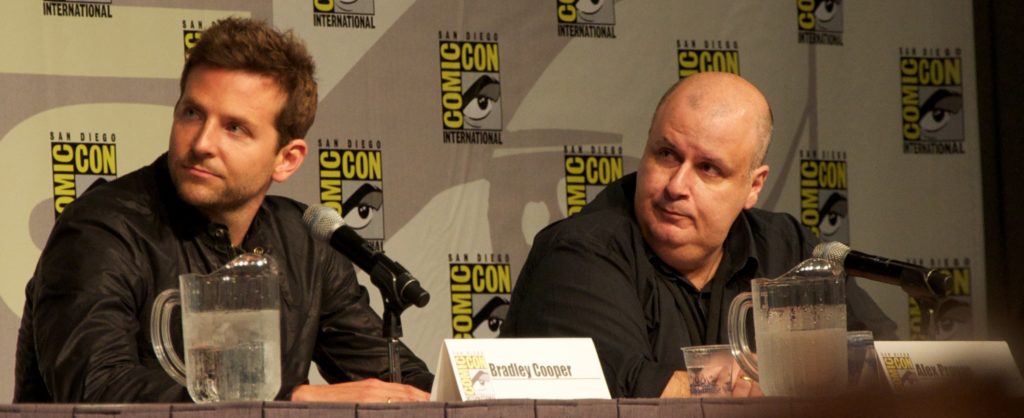Lucifer was to be the lead role in the film adaptation of Paradise Lost, the Morningstar the true star of the picture. With the stakes as high as possible, the actor destined to become this distinguished Devil would need “Atlantean shoulders” to bear the responsibility of such a titanic role. Daniel Craig and Heath Ledger were originally eyed for the part by producer Vincent Newman, according to the March 4, 2007 New York Times article on the Paradise Lost project, but it wasn’t until the film was under the direction of Alex Proyas that Heaven’s preeminent angel was given a face. That face belonged to Hollywood’s rising star Bradley Cooper.
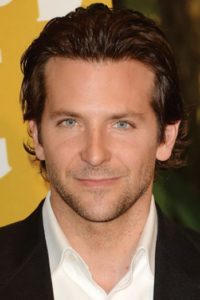 Known mostly for his roles in comedy dramas, Cooper made for an unlikely Lucifer, even if he possessed a convincingly diabolical image: a tall, athletic physique crowned with an oblong visage, punctuated by a mischievous smirk and star-bright eyes. (The devilishly handsome actor would be chosen as People magazine’s “sexiest man alive” in the fall of 2011.) Cooper became famous for his performance as Phil Wenneck, the selfish, slick, smooth-talking rake of the 2009 comedy hit The Hangover. As peculiar as “the guy from The Hangover” playing Lucifer may have seemed to people, the actor’s passion for Paradise Lost undeniably infused tremendous energy into the project.
Known mostly for his roles in comedy dramas, Cooper made for an unlikely Lucifer, even if he possessed a convincingly diabolical image: a tall, athletic physique crowned with an oblong visage, punctuated by a mischievous smirk and star-bright eyes. (The devilishly handsome actor would be chosen as People magazine’s “sexiest man alive” in the fall of 2011.) Cooper became famous for his performance as Phil Wenneck, the selfish, slick, smooth-talking rake of the 2009 comedy hit The Hangover. As peculiar as “the guy from The Hangover” playing Lucifer may have seemed to people, the actor’s passion for Paradise Lost undeniably infused tremendous energy into the project.
It was announced on May 4 of 2011 that Cooper would likely be stepping into the role of Lucifer, and when the actor appeared on Charlie Rose three weeks later to promote the anticipated sequel to The Hangover, he leapt at the opportunity to advertise Paradise Lost. Speaking about Milton’s epic with great enthusiasm, Cooper expressed that he “loved” the poem, which he studied at Georgetown University under Jason Rosenblatt, a former president of the Milton Society of America. “I just loved the idea of Lucifer being a very charismatic guy who you agree with,” Cooper told Charlie Rose, reasoning that Milton’s Satan “makes a very sound argument in that poem.” Cooper found that the spirit of the sympathetic Satan was carried over into the screenplay adaptation, which presented him with the story of a father and two sons: the father explains to his sons that he “love[s] the family dog” more than them, and in fact wants to enlist his sons in the dog’s service; one son is blindly compliant, but the other son believes the father has gone insane, this indignant son challenging his sheepish brother on account of “the betrayal that he feels.”
What Cooper alluded to is surely the cosmic sibling rivalry between the archangels Michael and Lucifer, set in motion by Almighty God, the eternal Father who subordinates His angelic sons to a creature inferior in the Creation: Man. (A significant departure from Milton’s text, wherein Satan’s rebellion is set in motion by the Son of God’s exaltation to universal kingship and orchestrating the Fall of Man is merely an afterthought—a means of bittersweet revenge against the God who damned the rebel angels to Hell.) While this cosmic conflict might seem larger-than-life, Cooper found the story rather down-to-earth and relatable: “I just liked the simplicity of it. I…felt a hook into that.”
As psyched as Cooper was about the possibility of scoring the role of Milton’s Satan in a mega-budget Hollywood adaptation of Paradise Lost, the actor was not quite met with equal excitement by Legendary Pictures. While his role in The Hangover (also produced by Legendary) launched him into the limelight, Cooper became crystallized as Phil—or simply “the guy from The Hangover”—and Paradise Lost director Alex Proyas had great difficulty imagining the actor stepping into the titanic role of Lucifer, the great adversary of Almighty God. Cooper painted Proyas’s reaction rather perfectly to Charlie Rose: “The guy from The Hangover is not Lucifer. I just can’t see it.” Cooper was no stranger to this response, relating on another occasion that he’d previously pitched the idea of him playing Lucifer to Thomas Tull, chairman and chief executive of Legendary Pictures, Cooper paradoxically begging to play the Prince of Pride. He was not prepared to back away from the challenge of convincing Proyas he was right for the role of the ultimate rebel.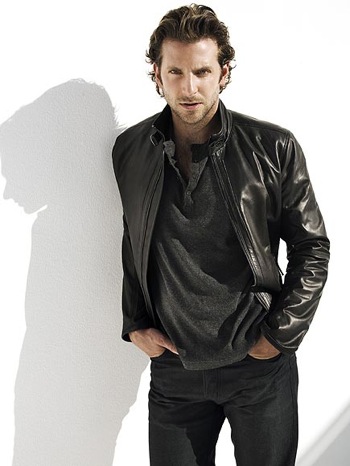
As underestimated as he was, Cooper at no point expressed frustration with the lack of confidence people had in the prospect of the guy from The Hangover as Lucifer. Instead, Cooper voiced his thankfulness for being a part of The Hangover ensemble, which afforded him the success and recognition needed to score bigger and better roles, the most significant of which was Eddie Morra in 2011’s surprisingly successful Limitless. Cooper explained to Charlie Rose that his performance in the modern-day Faustian bargain tale of sorts convinced Proyas that he could carry a movie, yet the question remained: “But can he carry Lucifer?”
What made Proyas a believer in the guy from The Hangover as Lucifer, according to Cooper, was an extremely informal test performance in the actor’s kitchen, filmed on a flip camera by a friend. The performance was apparently transformative for Cooper, his booming, echoing voice (in “mid-Atlantic accent”) immersing him in the fantastical scene. “It just happened,” Cooper related to Charlie Rose. “I just found it.” Cooper would go on to add that “that experience in my kitchen will give me the confidence to go anywhere with that character.” The impressiveness of the performance was not lost on Alex Proyas. When Cooper and his friend e-mailed the homemade film clip to the director, they received a promising e-mail back from Proyas, who quoted that famous Satanic line from Rosemary’s Baby: “Satan lives!”
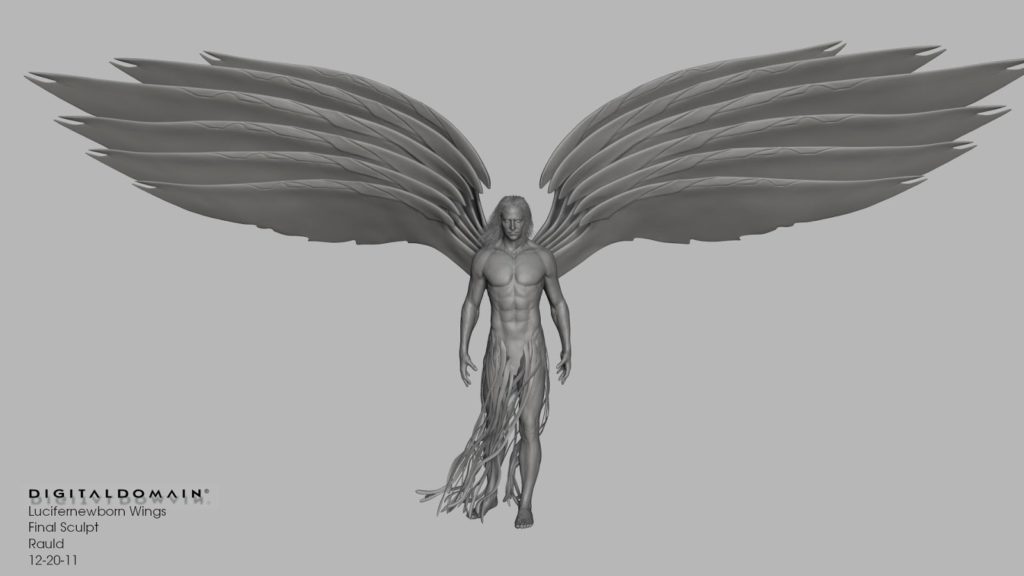
And so it was: the guy from The Hangover was Lucifer. When Proyas and Cooper appeared at the San Diego Comic-Con in July of 2011 to promote Paradise Lost, then in preproduction, the director was straightforward about his confidence in Cooper as “the most extraordinary character that we’ve never seen on film before”: “…[M]eeting Bradley and seeing what he was capable of blew me away. It’s been a very unexpected turn, I think, for the character, but I think it was meant to happen.” Cooper, speaking of the project with characteristic enthusiasm, in turn expressed his trust in Proyas’s vision of the film:
It is early days, but it’s been living with me for a long time…I relate a lot to this character and this story. To me, it’s a very small movie, actually; it’s a very small story about an intimate nuclear family—about two brothers and their father and what happens when one son feels utterly betrayed. So, to me, I think that there are a lot of…personal ways into this character, which is what makes it so exciting to do it with this kind of scope and with a director that has the kind of vision that Alex does. See Dark City or any of his movies, you know that this is the right guy for the job.
When asked by the Comic-Con presenter what the Paradise Lost project offered that struck a chord with him, Cooper once again humbly emphasized his deep desire to play this iconic character in this classic story, which he has had such a strong affinity for since his undergraduate days: “It was more of Alex’s choice, me begging for it. I studied Paradise Lost in college…and I always just loved the poem and the depiction of Lucifer as a very sympathetic character, in my estimation…” Cooper clearly possessed the proper mindset to step into the role of Lucifer, and Proyas would go on to assert his belief that the persistent actor possessed the complexities and the acting chops to pull off the performance of Milton’s multifaceted fallen archangel: “…Bradley is the most charming guy you’ll ever meet, with this extraordinary charisma. Lucifer was the brightest and smartest of the archangels, and even as he descended into evil and evolved into Satan, he’s not just some black-and-white villain. Bradley brings extraordinary depth to that journey.”
Cooper, along with Proyas, was surely profoundly disappointed when his opportunity to star as Lucifer was lost with Legendary Pictures’ cancelation of Paradise Lost in early 2012. Non-believers in the guy from The Hangover as Lucifer, on the other hand, were relieved, especially when Cooper reminisced about the project in an interview for GQ in December of 2013. While he was apparently “moved to something close to joy, recall[ing] his first encounter with Paradise Lost,” Cooper proved to be far less deep than Proyas painted him:
Milton, bro? Milton. Fuckin’—that was the end of it. Motherfucker’s 57 or whatever, blind, dictating it to his fucking daughter-nurse—Paradise Lost? I mean, I just couldn’t…That poem fucking killed me. Satan? That character was un-fucking-believable. I could taste him in my mouth, dude, reading that. I really, really, for some reason, connected with that poem.
As embarrassingly superficial as this rant might have been, to be fair to Cooper it was a rare moment in an otherwise promising journey to fleshing out the fallen angel of Milton’s magnum opus. In most of his discussions about Paradise Lost and his relentless determination to star in the film adaptation of the epic poem, Cooper undeniably proved to be surprisingly insightful and poised to play Milton’s apostate angel, Lucifer.
Some would never be convinced by the guy from The Hangover as Lucifer—perhaps at least until they saw his performance. After all, while there have certainly been notorious examples of miscast leads, there have also been underestimated actors who blew people away with iconic performances which doubters never anticipated. For instance, when Michael Keaton was cast as Batman in the 1989 film, comic book fans exploded into a furor, but Keaton’s brooding performance as the mysterious Dark Knight quite simply awed audiences, many fans still considering Keaton’s the definitive Batman performance. Similarly, when Tom Cruise was cast as the vampire Lestat in the 1994 film adaptation of Interview with the Vampire, author/screenwriter Anne Rice expressed her lack of confidence in the Hollywood heartthrob’s performance, describing the casting as “so bizarre, it’s almost impossible to imagine how it’s going to work…” Yet when she saw Cruise in the role, Rice was ultimately compelled to assert that “Tom was Lestat for me.” I was hopeful that filmgoers would be just as overawed by Bradley Cooper’s performance as Lucifer.
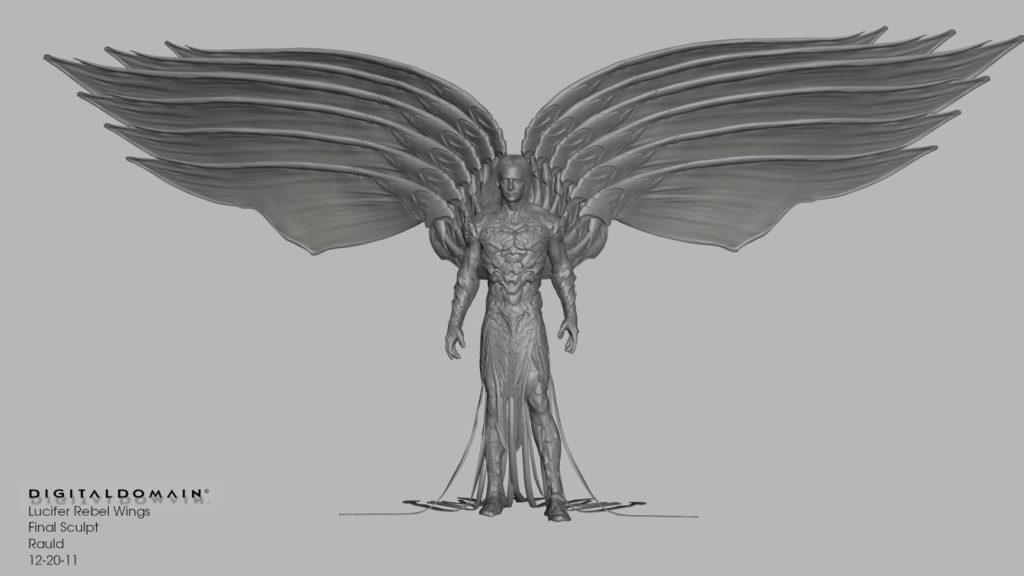
I became a believer in the guy from The Hangover as Lucifer not only because of Cooper’s heartfelt love for Paradise Lost, but also because of the actor’s unabashed passion for Milton’s Satan. Cooper explained in an interview with Metro in December of 2011 that he “fell in love with that character because I couldn’t believe how appetising he is in that poem. Satan is the hero. It’s a story we can all relate to.…It’s about the father [God] betraying the [Satan] character.” Whatever the other filmmakers had in mind for the presentation of Paradise Lost, Cooper was clearly going for a Romantic portrayal of Milton’s Satan, which was tremendously reassuring.
If the Paradise Lost film is ever revived, I know I will be hoping for Cooper’s return to the role of Lucifer. If, however, the Devil assumes a new form, I can only hope that the actor who replaces Cooper shares his enthusiasm for the Miltonic Lucifer and the endeavor of bringing that most iconic character to the silver screen.
